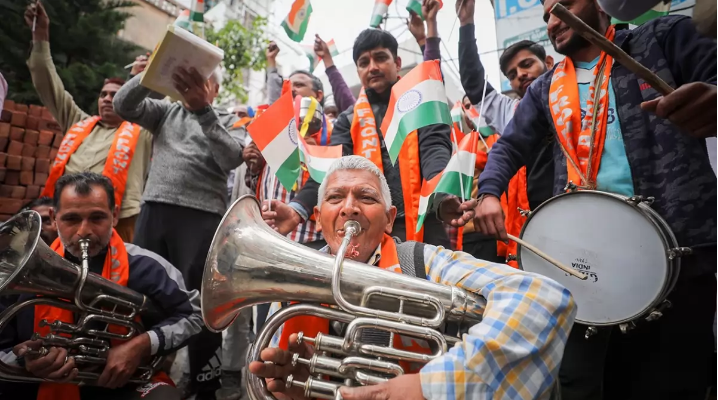Starting from the main reservation carried out by the Maharaja of Kohlapur to the times of freedom, standard in schooling and public administrations has been a system to lighten social debasement, not destitution.
In 2006, back in Kolkata, a development under the standard of Youth for Correspondence was acquiring strength. The understudies generally of the clinical schools transformed their grounds into fight locales. They were not completely against reservation, as they said. They were against ‘rank-based' reservations. Ananya, a 21-year of age understudy of Calcutta Clinical School, who herself had a place with OBC classification while driving the development told, “Look, I have a place with OBC class however my family is monetarily sufficiently able to fund my schooling. I don't require a reservation. Agreed activities ought to be for the individuals who are monetarily denied. We are here to drift the possibility of a casteless society.”
Nothing was new as would be natural for her. Rather, the reliable figure of speech has been utilized by the counter station-based reservation fomenters since the times of constituent get-together discussion. Thus, when the High Court in Janhit Abhiyan v Association of India sanctioned the 103rd established correction permitting 10% reservation to the Monetarily More fragile Area (EWS) among the upper standings, it essentially followed the ways of its upper station brethren for whom ‘monetary boundary', not the rank, is the most grounded prevention to the advancement of the retrogressive classes.
The greater part judgment of Judges Dinesh Maheshwari, Bela Trivedi, and J B Pardiwala not just maintained the legality of a demonstration that commands 10% reservation to the upper standing individuals from poor monetary foundation, it likewise avoids Planned Positions, Booked Clans, and non-smooth layer Other In reverse Classes from the recently embedded conditions of 15(4) and 16(4). Equity Ravinder Bhat and the friendly CJI U Lalit had even observed this in their minority judgment and said that avoidance of SCs, STs and OBCs from the EWS offices adds up to make “coua nterfeit limit between comparably put denied people just based on station” and subsequently is violative of the balance standard.
Both the sides in the sacred seat however went against one another as far as lawful translations, they were on a similar board relating to involving ‘monetary' condition as a benchmark for giving reservation. In this specific circumstance, it is reasonable to see what does reservation depend on? What were the virtues it should maintain?
Equity Chinnappa Reddy while hearing K C Vasanth Kumar and One more v Province of Karnataka in 1985 strikingly said that the reservations were planned for ‘Equality, not Foundation'. The remainder of the judgment, as Alok Prasanna Kumar, a senior occupant individual at Vidhi Community for legitimate strategy in his new EPW article says, “is a clear and suggestive summation of the civil rights objectives of the plan of reservations in India”.
Since the absolute first reservation in Quite a while as executed by the lord of Kohlapur in 1902 to the most recent endeavors during the drafting of constitution, reservation has forever been a component to accomplish civil rights and nobility for the minimized local area.
On July 26, 1902, when the very first notification on reservation had been given from Kohlapur ruler Rajarshi Shahu's office, it was coordinated toward the regressive classes, exactly the non-Brahmin standings whose presence in the authoritative workplaces were unimportant. The half booking for the non-Brahmins as pronounced by Shahu, but had a foundation of embarrassment.
In October, 1899 when Shahu was playing out a few strict ceremonies in Panchaganga waterway, he observed that the clerics were discussing refrains from Purana rather than Vedas. Upon enquiry, he got to know that as Marathas were viewed as Shudras, they were not permitted to discuss Vedas as the Brahmins had syndication on it. This absence of respect of the Maratha clerics had severely raised a ruckus around town taught liberal Ruler.
